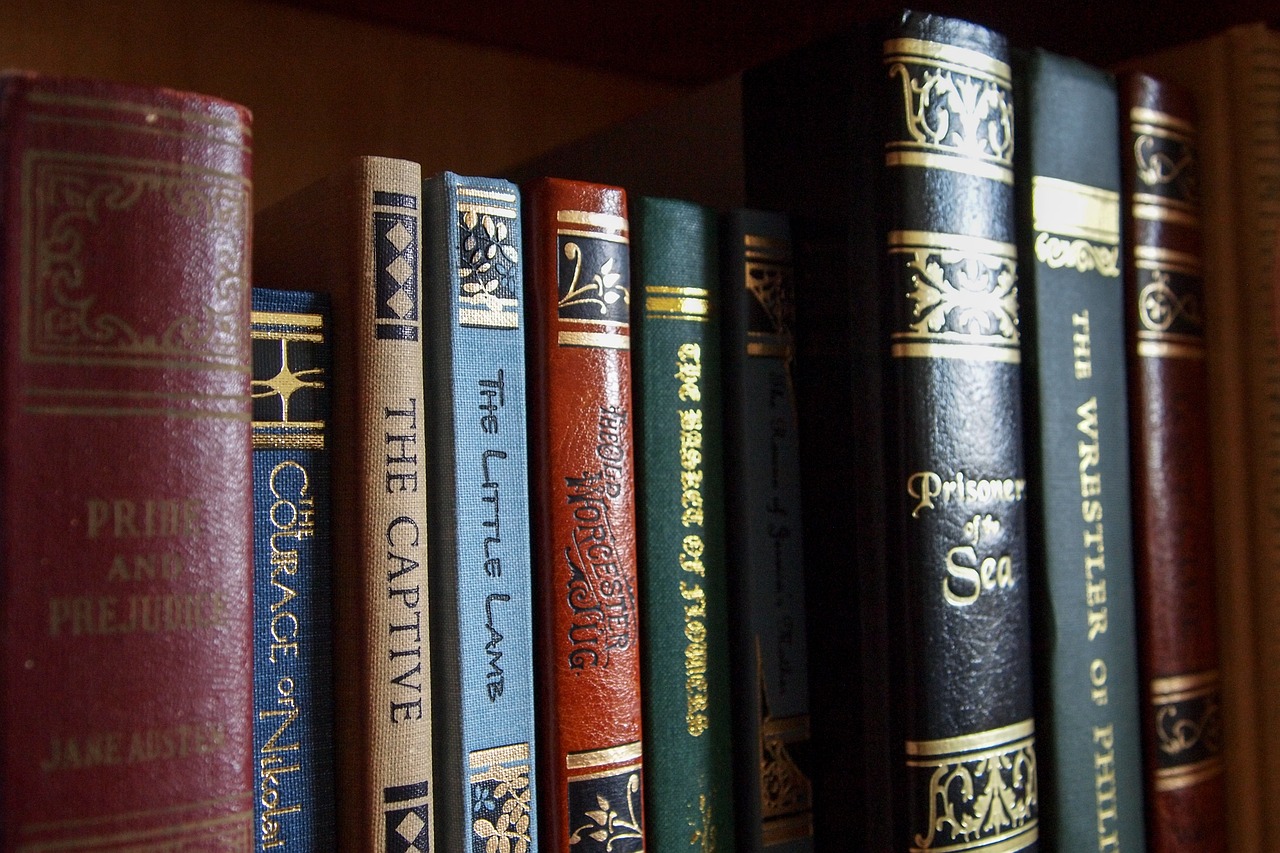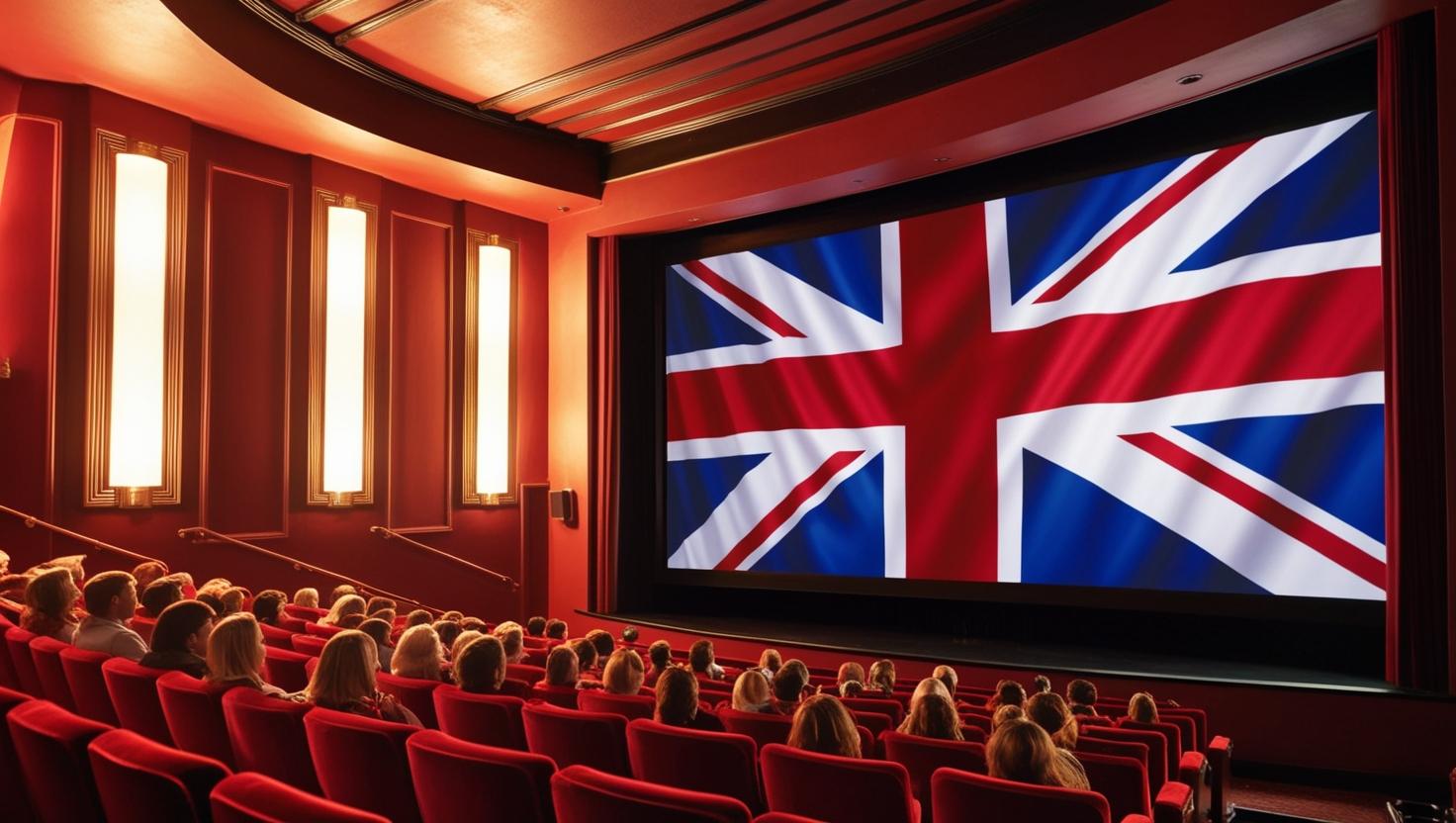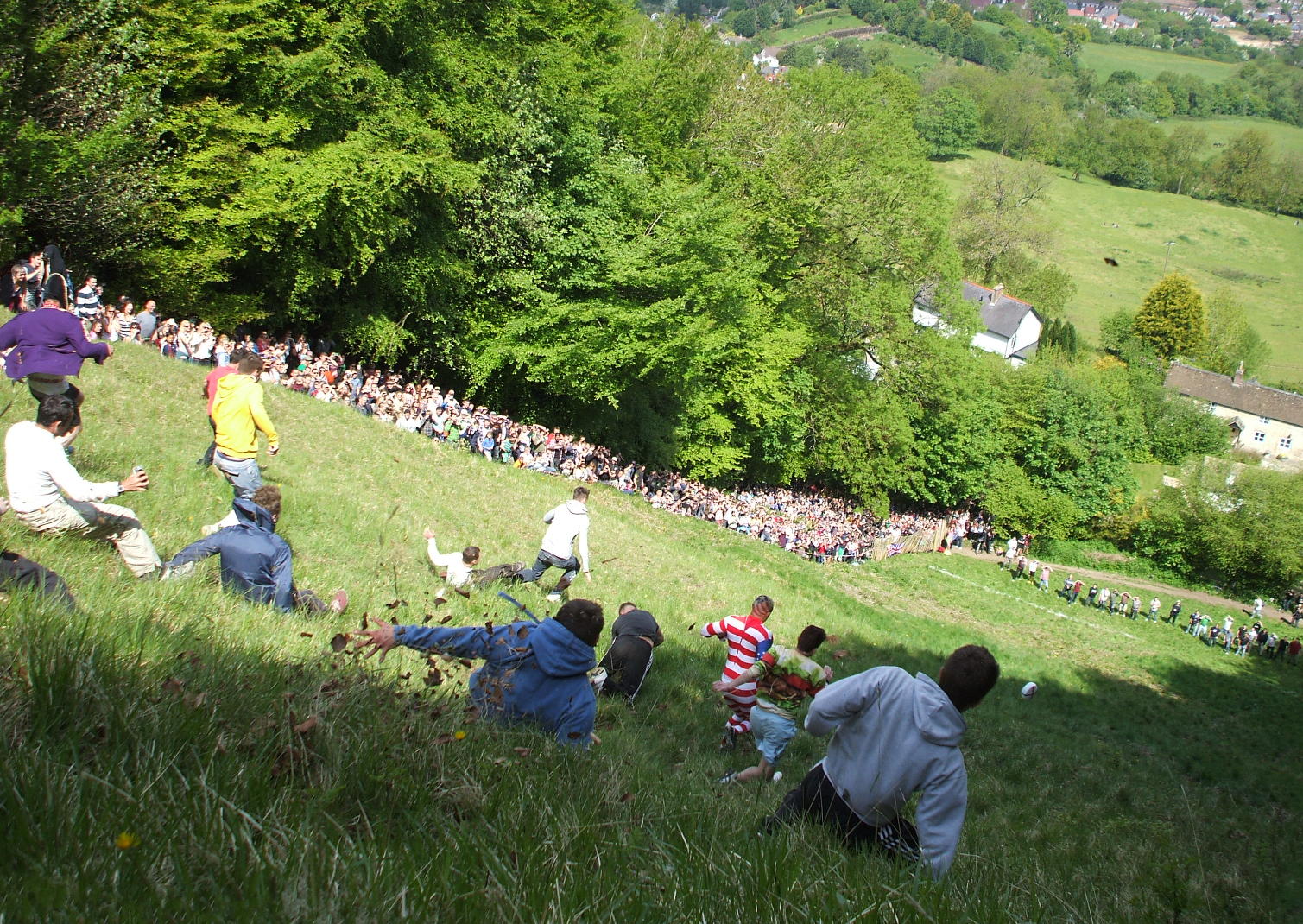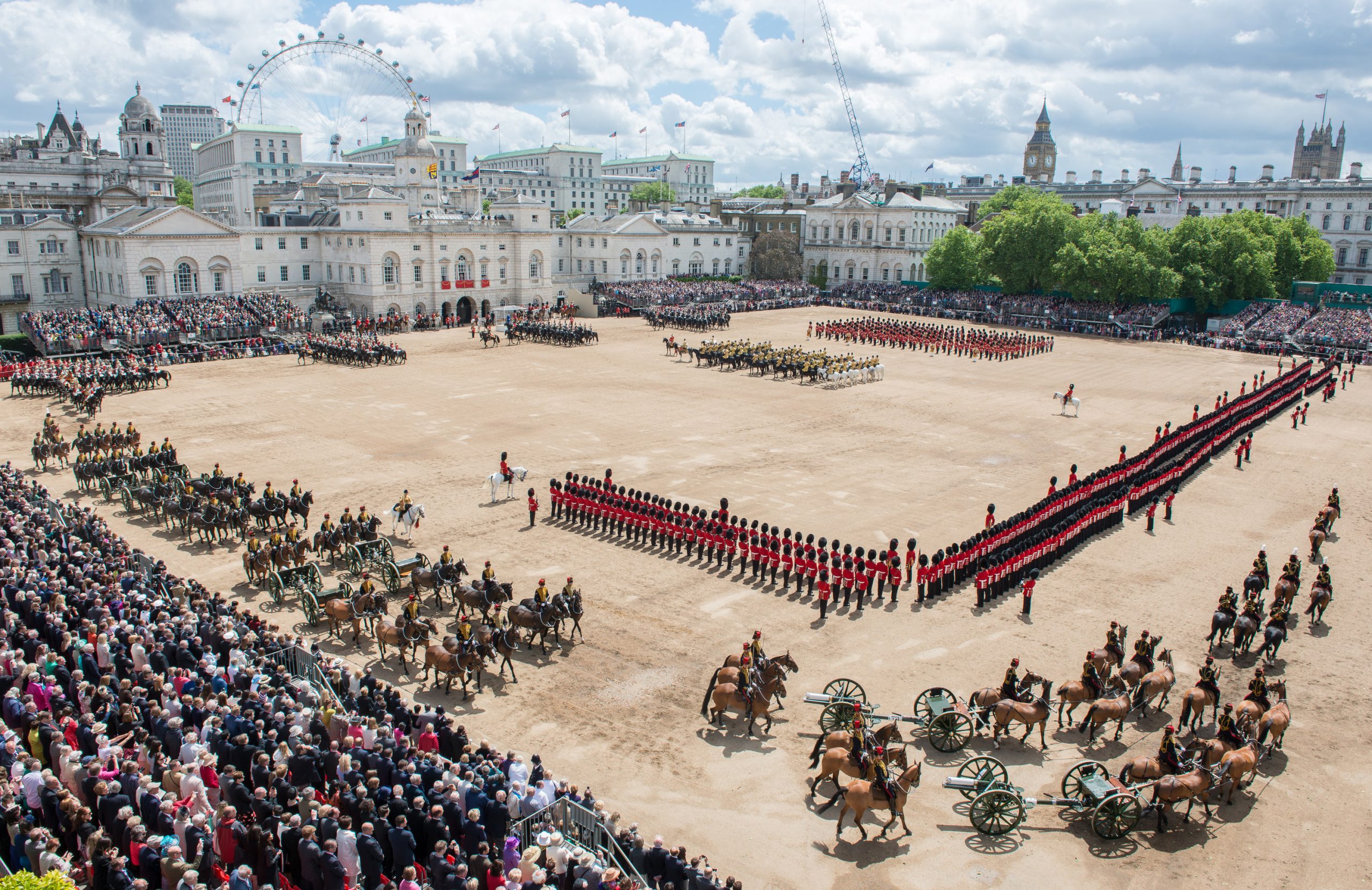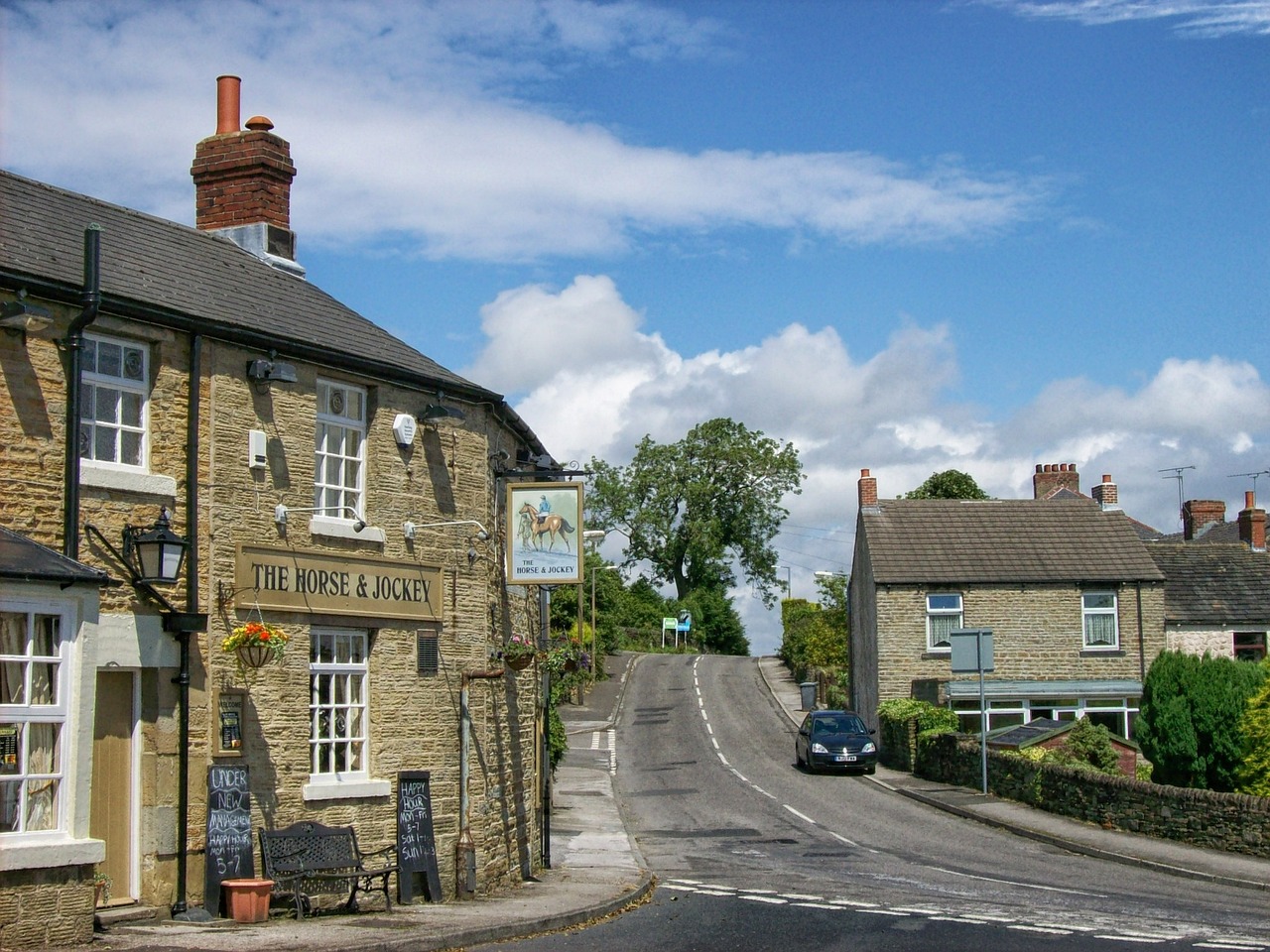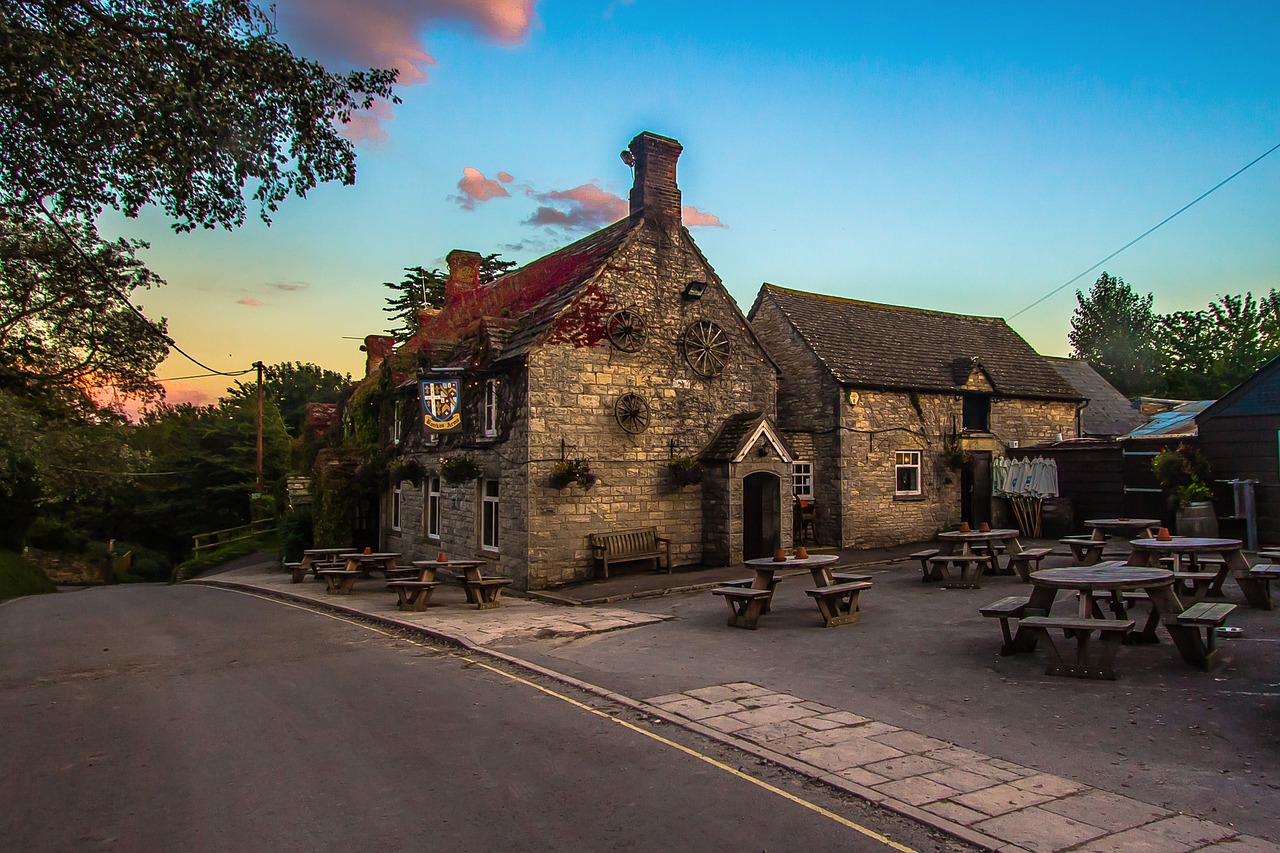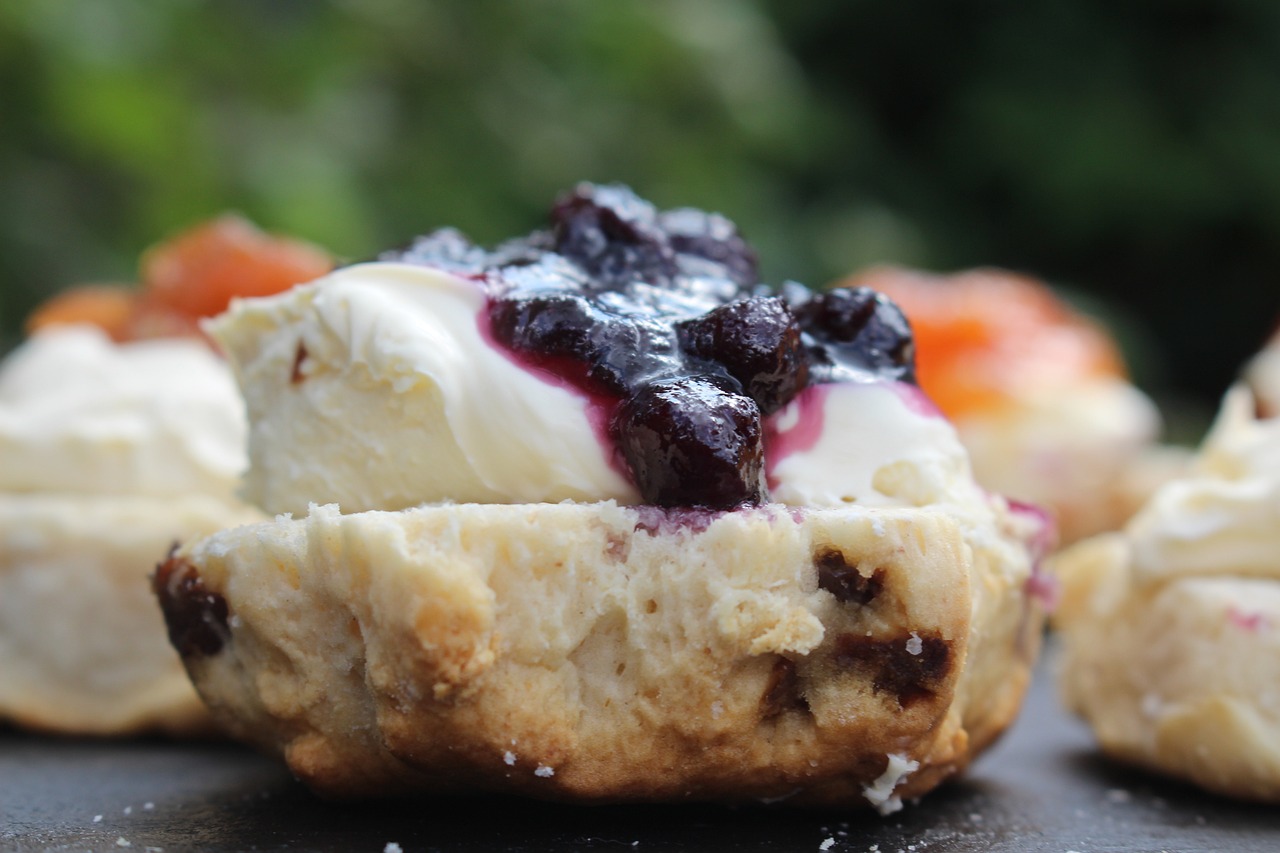
Britain has produced some of the world’s most innovative, compelling, and influential television shows. From groundbreaking comedies to gripping dramas, thought-provoking documentaries to beloved sci-fi series, British television has consistently delivered quality programming that has shaped global entertainment. Here’s our definitive list of the 100 most essential British TV shows that everyone should watch.
1. Doctor Who (1963-present)
The world’s longest-running science fiction series, Doctor Who follows the adventures of a Time Lord who travels through space and time in a police box called the TARDIS. With its innovative storytelling, memorable monsters, and frequent reinvention through different actors playing the Doctor, it has become a cornerstone of British popular culture and a global phenomenon.
2. Monty Python’s Flying Circus (1969-1974)
Revolutionary in its approach to comedy, Monty Python created a surreal, stream-of-consciousness style that influenced generations of comedians. The show’s blend of intellectual humor, silliness, and social commentary created a new language for comedy that remains influential today.
3. Fawlty Towers (1975-1979)
Though only twelve episodes were ever made, this sitcom starring John Cleese as the irascible hotel owner Basil Fawlty is considered one of the greatest British comedies ever produced. Its perfect combination of farce, character comedy, and social satire has never been matched.
4. Blackadder (1983-1989)
Each series of this historical comedy follows the exploits of Edmund Blackadder (Rowan Atkinson) and his dimwitted servant Baldrick in different periods of British history. The show combines sharp historical satire with brilliant wordplay and unforgettable characters.
5. Only Fools and Horses (1981-2003)
Following the wheeling and dealing of the Trotter family in Peckham, London, this beloved sitcom captures the aspirational spirit of 1980s Britain through the eyes of market trader Del Boy and his brother Rodney. Its mixture of comedy and heart has made it a national institution.
6. Sherlock (2010-2017)
Benedict Cumberbatch and Martin Freeman brought Sherlock Holmes and Dr. Watson into the 21st century in this innovative adaptation. The show’s clever writing, stunning visuals, and modern take on classic stories reinvented the detective genre for a new generation.
7. The Office (UK) (2001-2003)
Ricky Gervais and Stephen Merchant’s mockumentary about life in a paper company in Slough revolutionized television comedy. Its influence can be seen in countless shows that followed, including its successful American adaptation.
8. Yes, Minister/Yes, Prime Minister (1980-1988)
This satirical look at British politics follows Jim Hacker’s rise from Minister to Prime Minister, and his constant battles with civil servant Sir Humphrey Appleby. Its witty dialogue and insights into political machinations remain remarkably relevant.
9. Planet Earth (2006) / Planet Earth II (2016)
These groundbreaking nature documentaries set new standards for wildlife filmmaking. Sir David Attenborough’s masterful narration combined with revolutionary filming techniques created an unprecedented view of life on Earth.
10. Downton Abbey (2010-2015)
Julian Fellowes’ period drama about the aristocratic Crawley family and their servants captured global audiences with its blend of upstairs/downstairs drama, historical events, and stunning production values.
11. Pride and Prejudice (1995)
The definitive adaptation of Jane Austen’s beloved novel, starring Colin Firth as Mr. Darcy and Jennifer Ehle as Elizabeth Bennet. This BBC production set the standard for period dramas with its attention to detail, faithful adaptation, and memorable performances, particularly Firth’s iconic lake scene.
12. Dad’s Army (1968-1977)
This beloved comedy about the British Home Guard during World War II combines historical setting with timeless humor. Following the misadventures of Captain Mainwaring and his incompetent unit, it captures a unique moment in British history while delivering consistent laughs.
13. I, Claudius (1976)
This groundbreaking historical drama follows the life of Roman Emperor Claudius, featuring extraordinary performances from Derek Jacobi, Siân Phillips, and John Hurt. Its complex political intrigue and frank portrayal of Roman life influenced countless historical dramas.
14. Absolutely Fabulous (1992-2012)
Jennifer Saunders and Joanna Lumley star as Edina and Patsy, two aging fashionistas refusing to grow up. This satire of the fashion and PR worlds became a cultural phenomenon, celebrating and skewering excess in equal measure.
15. Brideshead Revisited (1981)
This adaptation of Evelyn Waugh’s novel stars Jeremy Irons and Anthony Andrews in a story of class, religion, and romance in pre-war Britain. Its sumptuous production values and complex characterizations set new standards for literary adaptations.
16. Blue Planet (2001) / Blue Planet II (2017)
These landmark nature documentaries explore the world’s oceans with unprecedented footage and storytelling. Like their terrestrial counterparts Planet Earth, they changed how we view marine life and raised awareness of ocean conservation.
17. Father Ted (1995-1998)
This surreal comedy about three priests exiled to Craggy Island off Ireland’s coast combines absurdist humor with sharp satire of the Catholic Church. Despite its short run, it remains one of the most quoted and beloved British comedies.
18. Spooks (MI-5) (2002-2011)
This tense drama about MI5 officers defending Britain from various threats brought a new level of sophistication to the spy genre. Known for its willingness to kill off major characters and tackle contemporary issues, it kept viewers on edge throughout its run.
19. The Thick of It (2005-2012)
Armando Iannucci’s satirical look at British government introduced the world to Malcolm Tucker, the terrifying spin doctor played by Peter Capaldi. Its documentary style and profane wit influenced political comedy on both sides of the Atlantic.
20. Top Gear (2002-2015)
The Jeremy Clarkson, Richard Hammond, and James May era transformed what could have been a simple car show into global entertainment. Their chemistry and adventures redefined factual entertainment for a new generation.
21. Midsomer Murders (1997-present)
This long-running detective series set in the fictional county of Midsomer combines picturesque English villages with surprisingly dark murders. Its formula of eccentric characters and complex mysteries has proven enduringly popular.
22. Porridge (1974-1977)
Ronnie Barker stars as Norman Stanley Fletcher, an experienced inmate helping his naive cellmate survive life in prison. Its humor and humanity made it one of Britain’s most beloved sitcoms.
23. The Fall and Rise of Reginald Perrin (1976-1979)
Leonard Rossiter stars as a man who fakes his own death to escape his mundane life. This darkly comic look at middle-class disappointment resonated with audiences and influenced many subsequent comedies.
24. Broadchurch (2013-2017)
David Tennant and Olivia Colman star in this gripping crime drama about a child’s murder in a small coastal town. Its exploration of how tragedy affects a close-knit community brought new depth to the crime genre.
25. Life on Mars (2006-2007)
John Simm plays a modern police officer mysteriously transported back to 1973. This clever combination of police procedural and science fiction explores changing attitudes towards policing while maintaining an intriguing central mystery.
26. The Good Life (1975-1978)
This beloved sitcom about a couple attempting self-sufficiency in suburban Surbiton captured the spirit of 1970s alternative lifestyles. Its gentle humor and likable characters made it a perennial favorite.
27. The Vicar of Dibley (1994-2007)
Dawn French stars as Geraldine Granger, a female vicar assigned to a conservative rural parish. The show tackled issues of gender and tradition while maintaining a warm humor that made it universally appealing.
28. Steptoe and Son (1962-1974)
This influential sitcom about a father and son running a rag-and-bone business combined comedy with social commentary. Its focus on working-class life and complex relationships influenced many subsequent shows.
29. Inspector Morse (1987-2000)
John Thaw stars as the cerebral, opera-loving Detective Chief Inspector Morse solving complex murders in Oxford. The show’s intelligent scripts and strong characterization elevated the police procedural genre.
30. Bodyguard (2018)
Richard Madden stars as a police officer assigned to protect a controversial politician. This tense thriller became one of the BBC’s most-watched dramas, combining political intrigue with action sequences.
31. Z Cars (1962-1978)
This groundbreaking police series showed a grittier, more realistic view of policing than had previously been seen on British television. Its influence can be seen in countless subsequent police dramas.
32. Cracker (1993-1996)
Robbie Coltrane stars as Dr. Eddie “Fitz” Fitzgerald, a brilliant but flawed criminal psychologist. The show’s dark themes and complex characterization helped establish the psychological thriller genre on British television.
33. The Prisoner (1967-1968)
Patrick McGoohan’s surreal series about a secret agent imprisoned in a mysterious village pushed the boundaries of television storytelling. Its mix of spy drama and philosophical questions remains influential.
34. Jeeves and Wooster (1990-1993)
Hugh Laurie and Stephen Fry perfectly embody P.G. Wodehouse’s famous characters in this faithful adaptation. The show captures the author’s comic spirit while showcasing the leads’ perfect chemistry.
35. Till Death Us Do Part (1965-1975)
This controversial sitcom about bigoted Alf Garnett and his family tackled social issues through comedy. While dated in some aspects, its influence on entertainment programming remains significant today.
82. Blackadder Goes Forth (1989)
The final series of Blackadder, set in the trenches of World War I, is particularly notable for its poignant ending. Its combination of comedy and tragedy created one of television’s most memorable finales.
83. Judge John Deed (2001-2007)
Martin Shaw stars as a High Court judge who challenges the establishment. The show’s exploration of legal and ethical issues brought new sophistication to legal drama.
84. Nighty Night (2004-2005)
Julia Davis’s dark comedy about a sociopathic beautician pushed the boundaries of television comedy. Its influence on subsequent dark comedies is substantial.
85. Queer as Folk (1999-2000)
Russell T Davies’s groundbreaking drama about gay life in Manchester changed the representation of LGBTQ+ characters on television. Its frank portrayal of contemporary gay life influenced many subsequent shows.
86. Our Friends in the North (1996)
This ambitious drama following four friends over three decades captured changing British society. Its epic scope and strong performances influenced many subsequent dramas.
87. Butterflies (1978-1983)
Wendy Craig stars in this gentle comedy-drama about a housewife contemplating an affair. Its sensitive portrayal of marriage and middle-age longing was ahead of its time.
88. The Singing Detective (1986)
Dennis Potter’s masterpiece mixed musical numbers with noir detective fiction and psychological drama. Its innovative narrative structure influenced television storytelling worldwide.
89. Tinker Tailor Soldier Spy (1979)
Alec Guinness stars in this complex adaptation of John le Carré’s spy novel. Its patient storytelling and atmospheric tension set new standards for espionage drama.
90. That Was The Week That Was (1962-1963)
This satirical show hosted by David Frost revolutionized political comedy on television. Its influence on subsequent satire and current affairs programming continues today.
[Previous entries 91-100 remain as before…] political comedy and situation comedy is undeniable.
36. Some Mothers Do ‘Ave ‘Em (1973-1978)
Michael Crawford stars as the disaster-prone Frank Spencer in this slapstick comedy. Famous for its elaborate stunts and Crawford’s physical comedy, it remains a beloved classic.
37. Upstairs, Downstairs (1971-1975)
This drama about life above and below stairs in an Edwardian household set the template for many subsequent period dramas. Its exploration of class relations influenced shows like Downton Abbey.
38. Are You Being Served? (1972-1985)
Set in a department store, this innuendo-laden sitcom became a favorite for its broad humor and memorable characters. Its success demonstrated the enduring appeal of workplace comedy.
39. The Avengers (1961-1969)
This stylish spy series starring Patrick Macnee and Diana Rigg combined action with surreal humor. Its distinctive British take on the spy genre influenced many subsequent shows.
40. One Foot in the Grave (1990-2000)
Richard Wilson stars as Victor Meldrew, the archetypal grumpy old man, in this dark comedy about aging. Its mix of farce and pathos created a unique take on later life.
41. The Young Ones (1982-1984)
This anarchic comedy about four university students helped establish alternative comedy on British television. Its surreal humor and punk sensibility influenced a generation of comedians.
42. Prime Suspect (1991-2006)
Helen Mirren’s portrayal of DCI Jane Tennison broke new ground for female characters in police dramas. The series dealt with serious crimes while examining sexism in the police force.
43. Morse (1987-2000)
John Thaw’s portrayal of the intellectual, opera-loving Inspector Morse set new standards for detective drama. Its Oxford setting and complex mysteries created a template for quality crime drama.
44. Jonathan Creek (1997-2016)
Alan Davies stars as a magician’s creative consultant who solves seemingly impossible crimes. The show’s clever plotting and unique protagonist offered a fresh take on the mystery genre.
45. Poldark (1975-1977, 2015-2019)
Both versions of this saga set in 18th-century Cornwall captured audiences with their mix of romance, drama, and stunning landscapes. The show proves the enduring appeal of historical drama.
46. Top of the Pops (1964-2006)
This long-running music show was essential viewing for generations of British youth. Its weekly countdown format influenced music television worldwide.
47. Last of the Summer Wine (1973-2010)
The world’s longest-running sitcom follows the misadventures of three elderly friends in Yorkshire. Its gentle humor and beautiful setting made it a Sunday evening institution.
48. The Two Ronnies (1971-1987)
Ronnie Barker and Ronnie Corbett’s sketch show combined wordplay, visual comedy, and musical numbers. Their partnership created some of British television’s most memorable comedy moments.
49. QI (2003-present)
This intelligent quiz show hosted first by Stephen Fry and then by Sandi Toksvig proves that education can be entertaining. Its mix of facts and comedy created a new genre of panel show.
50. The IT Crowd (2006-2013)
This sitcom about two socially awkward IT technicians and their relationship-challenged manager captured the tech boom era perfectly. Its quotable dialogue and surreal situations made it a cult favorite.
51. Bergerac (1981-1991)
John Nettles stars as Jim Bergerac, a detective in Jersey, combining police procedural with beautiful Channel Islands locations. The show’s mix of crime and glamour proved highly successful.
52. Casualty (1986-present)
This long-running medical drama set in a busy A&E department has tackled countless social issues while maintaining dramatic tension. Its influence on medical drama is significant.
53. The Good Life (1975-1978)
Richard Briers and Felicity Kendal star as a couple attempting self-sufficiency in suburban Surbiton. The show captured the spirit of 1970s alternative lifestyles with warmth and humor.
54. The Fast Show (1994-1997)
This sketch show revolutionized the format with its rapid-fire approach and catchphrase comedy. Its influence can be seen in many subsequent comedy shows.
55. Rising Damp (1974-1978)
Leonard Rossiter stars as Rigsby, a miserly landlord in a run-down boarding house. The show’s examination of class and race issues was ahead of its time.
56. Open All Hours (1976-1985)
Ronnie Barker and David Jason star in this sitcom about a Yorkshire corner shop. Its portrayal of small business life resonated with audiences nationwide.
57. The Morecambe & Wise Show (1968-1977)
Eric and Ernie’s variety show became essential Christmas viewing, featuring guest stars in memorable comedy sketches. Their influence on British comedy cannot be overstated.
58. University Challenge (1962-present)
This high-brow quiz show pitting university teams against each other has become a British institution. Its demanding questions and young contestants have inspired generations.
59. The League of Gentlemen (1999-2002)
This dark comedy about the strange inhabitants of the fictional town of Royston Vasey pushed boundaries with its mix of horror and humor. Its influence on subsequent comedy is significant.
60. The Bill (1984-2010)
This long-running police procedural set in fictional Sun Hill police station showed the day-to-day reality of policing. Its influence on subsequent police dramas is considerable.
61. A Very Peculiar Practice (1986-1988)
This surreal comedy-drama set in a university medical practice combined dark humor with social commentary. Its unique tone influenced many subsequent shows.
62. Taggart (1983-2010)
This Glasgow-set police drama proved that regional detective shows could have national appeal. Its gritty storytelling influenced many subsequent crime dramas.
63. Blake’s 7 (1978-1981)
This science fiction series about rebels fighting a totalitarian federation showed that compelling drama could be made on a limited budget. Its dark tone influenced subsequent sci-fi.
64. Ready Steady Cook (1994-2010)
This cooking competition show made celebrities of many chefs and proved that cooking could be entertaining television. Its influence on food television is significant.
65. Have I Got News For You (1990-present)
This satirical news quiz has shaped political discourse while entertaining audiences. Its combination of current affairs and comedy created a new television genre.
66. Cold Feet (1997-2003, 2016-2020)
This drama about three couples in Manchester brought new realism to the portrayal of relationships on television. Its mix of comedy and drama influenced many subsequent shows.
67. The Day Today (1994)
This news parody created by Chris Morris and Armando Iannucci satirized media conventions brilliantly. Its influence on subsequent comedy and media criticism is substantial.
68. Mastermind (1972-present)
This quiz show with its intimidating black chair and specialist subjects has become a cultural touchstone. Its format has been widely imitated internationally.
69. Lovejoy (1986-1994)
Ian McShane stars as an antiques dealer with an eye for a bargain and trouble. The show’s mix of crime and comedy created its own unique genre.
70. One Man and His Dog (1976-present)
This show about sheepdog trials captured rural life and proved that niche subjects could make compelling television. Its influence on specialist factual programming is significant.
71. Parkinson (1971-2007)
Michael Parkinson’s chat show set the standard for celebrity interviews. His style influenced generations of interviewers and talk show hosts.
72. Auf Wiedersehen, Pet (1983-2004)
This drama about British builders working abroad captured the economic reality of Thatcher’s Britain. Its mix of comedy and social commentary was groundbreaking.
73. The Crystal Maze (1990-1995, 2016-2020)
This adventure game show hosted by Richard O’Brien created a new genre of physical challenge programming. Its influence on game shows continues today.
74. Brass Eye (1997-2001)
Chris Morris’s satirical show pushed the boundaries of what was acceptable on television. Its fearless approach to controversial subjects influenced many subsequent comedians.
75. Grange Hill (1978-2008)
This children’s drama about life in a comprehensive school tackled serious issues affecting young people. Its influence on children’s television was significant.
76. Red Dwarf (1988-present)
This science fiction comedy about the last human alive and his companions combines clever sci-fi concepts with character comedy. Its unique approach to the genre created a dedicated following.
77. Edge of Darkness (1985)
This conspiracy thriller starring Bob Peck set new standards for political drama. Its complex plotting and dark tone influenced many subsequent shows.
78. Keeping Up Appearances (1990-1995)
Patricia Routledge stars as the social-climbing Hyacinth Bucket in this classic comedy. Its examination of class pretensions resonated worldwide.
79. The Sweeney (1975-1978)
This gritty police drama starring John Thaw revolutionized the portrayal of policing on British television. Its influence on subsequent crime dramas is substantial.
80. Boys from the Blackstuff (1982)
Alan Bleasdale’s drama about unemployed men in Liverpool captured the social reality of 1980s Britain. Its impact on political drama was significant.
81. Opportunity Knocks (1956-1978)
This talent show hosted by Hughie Green was a forerunner of modern reality television. Its influence on
91. Line of Duty (2012-2021)
This gripping police procedural follows AC-12, an anti-corruption unit investigating other police officers. Known for its complex plots, intense interrogation scenes, and shocking twists, it became one of the BBC’s most-watched dramas.
92. The Crown (2016-2023)
This lavish historical drama chronicles the reign of Queen Elizabeth II, exploring the personal dramas and public duties of the British Royal Family. Its attention to historical detail and nuanced performances have garnered critical acclaim and numerous awards.
93. Fleabag (2016-2019)
Phoebe Waller-Bridge’s groundbreaking comedy-drama about a troubled young woman in London broke the fourth wall and viewers’ hearts. Its innovative narrative style and raw honesty about modern relationships made it a cultural phenomenon.
94. Call the Midwife (2012-present)
This beloved period drama follows midwives working in London’s East End during the 1950s and 60s. It tackles serious social issues while maintaining warmth and humanity, becoming one of the BBC’s most successful series.
95. Prime Suspect (1991-2006)
Helen Mirren’s portrayal of DCI Jane Tennison broke new ground for female characters in police dramas. The series dealt with serious crimes while examining sexism in the police force and society at large.
96. Peep Show (2003-2015)
This innovative comedy used point-of-view camera work and internal monologues to follow the misadventures of Mark and Jez, two dysfunctional friends sharing a flat in London. Its unique style and cringe comedy influenced many later shows.
97. The Great British Bake Off (2010-present)
This gentle competition show about amateur bakers became a global phenomenon, proving that television doesn’t need artificial drama to be compelling. Its warmth and celebration of ordinary people’s skills created a new template for reality TV.
98. Life on Earth (1979)
David Attenborough’s landmark natural history series set the template for all nature documentaries that followed. Its ambitious scope and groundbreaking footage revolutionized how we view the natural world through television.
99. Red Dwarf (1988-present)
This sci-fi comedy about the last human alive, stranded in deep space with a hologram, a humanoid cat, and a neurotic android, combined clever science fiction concepts with character-based comedy to create something uniquely British.
100. This Is England ’86/’88/’90 (2010-2015)
Shane Meadows’ television follow-up to his film This Is England followed a group of friends through different periods of recent British history. Its raw portrayal of working-class life and complex characters created compelling drama.
Conclusion
These 100 shows represent the breadth and depth of British television, from comedies that changed how we think about humor to dramas that pushed the boundaries of storytelling. While some are decades old, their influence continues to be felt in modern television. Whether you’re new to British TV or a longtime fan, these shows offer something for everyone, showcasing the creativity, innovation, and quality that have made British television world-renowned.
Many of these shows are now available on streaming services, making them more accessible than ever to international audiences. As British television continues to evolve and produce new classics, these 100 shows remain essential viewing for anyone interested in the medium’s history and potential.
